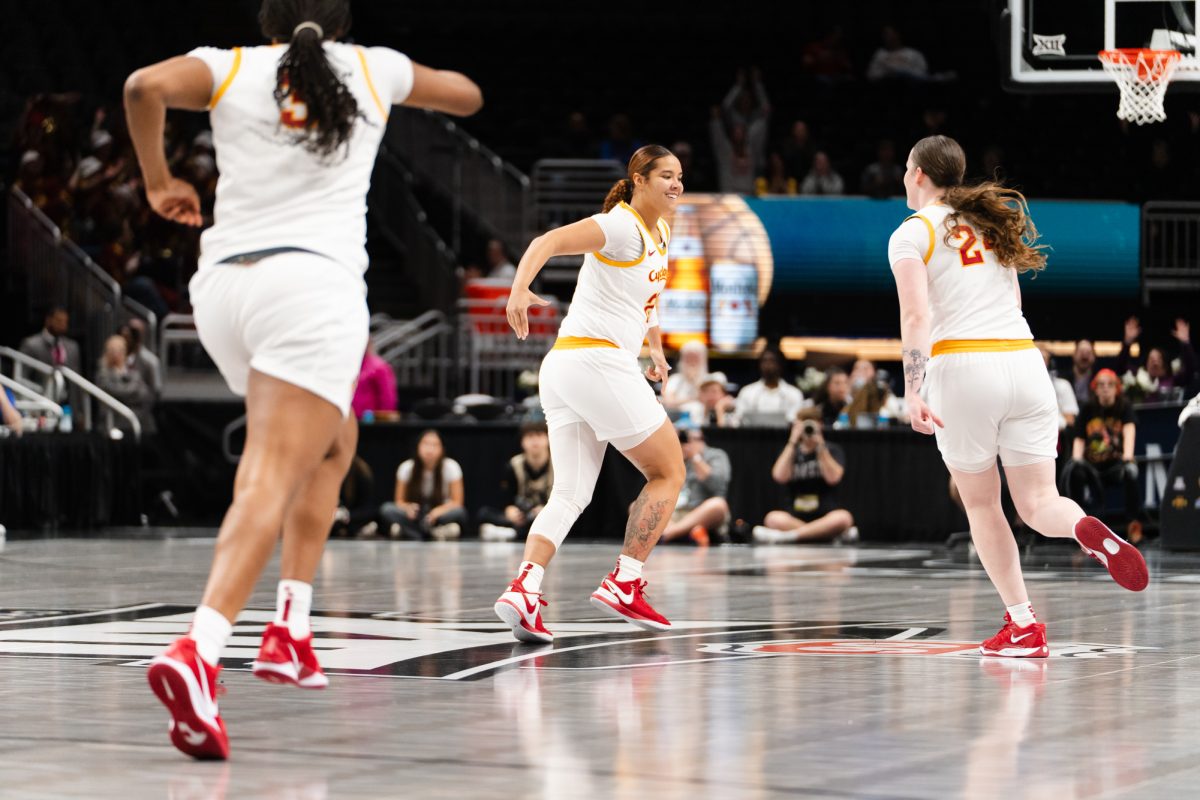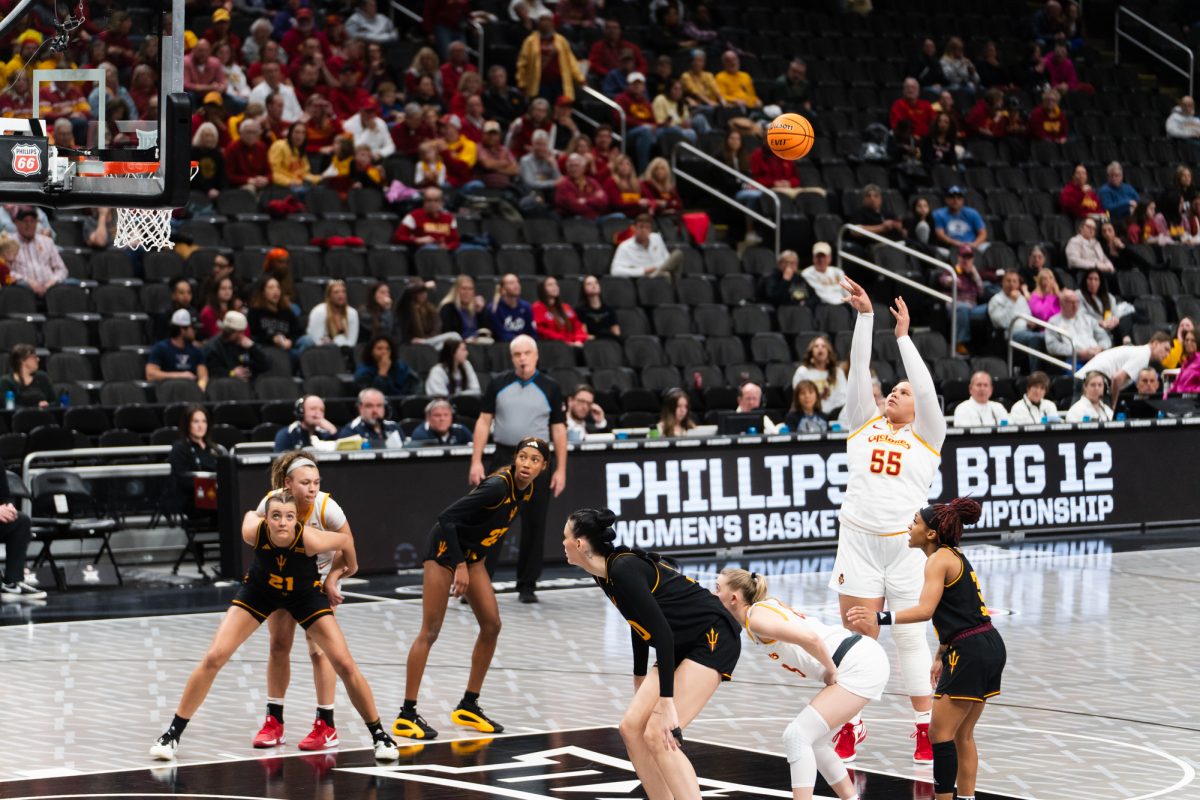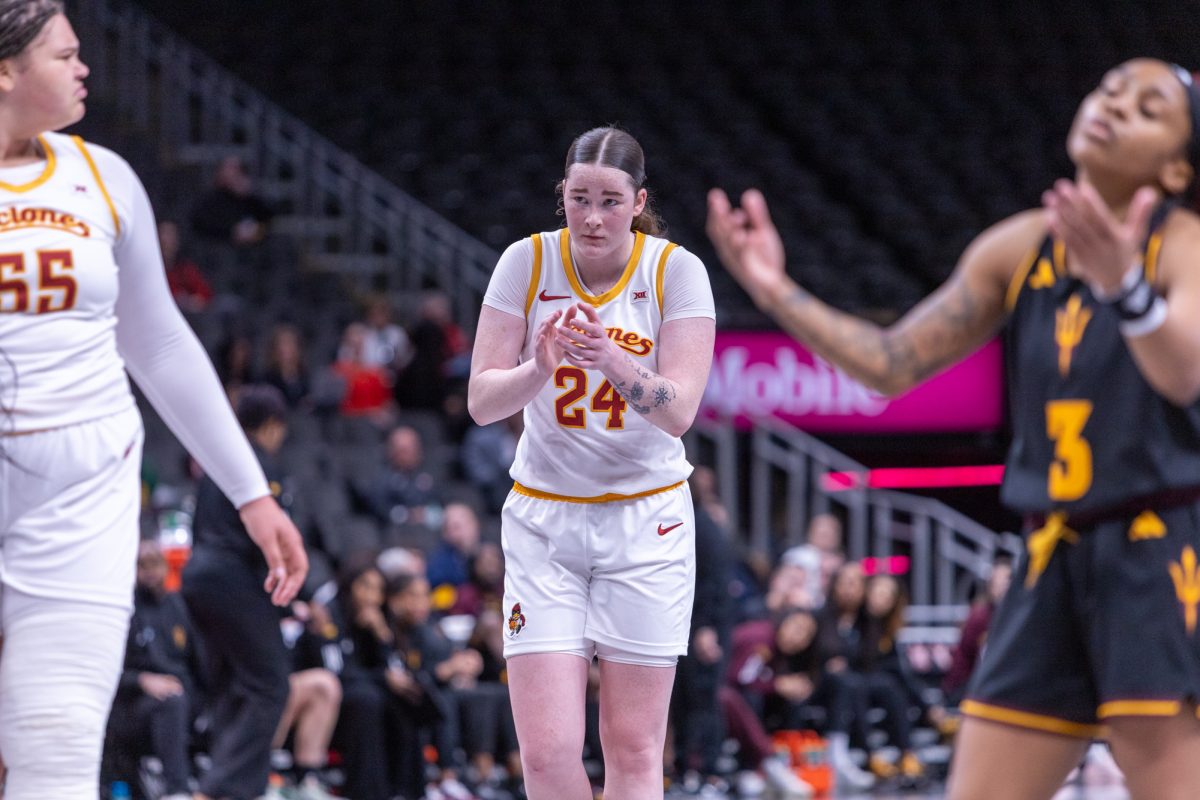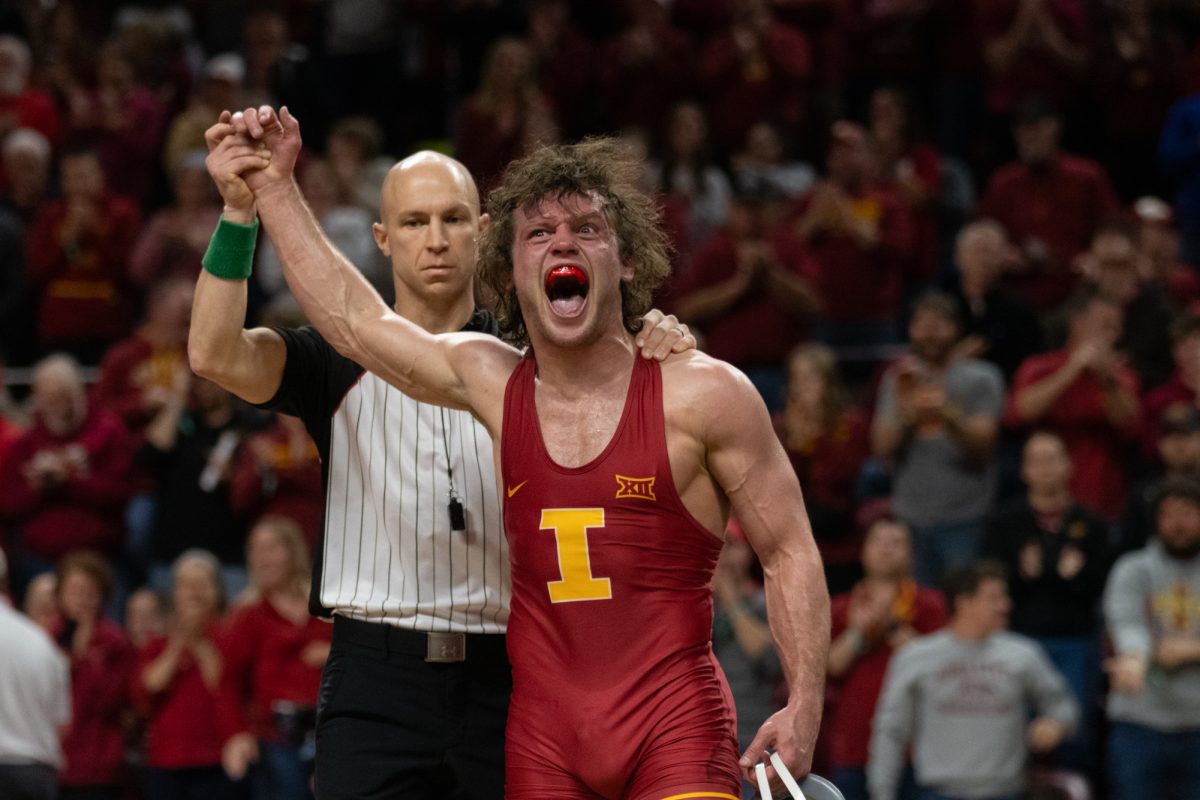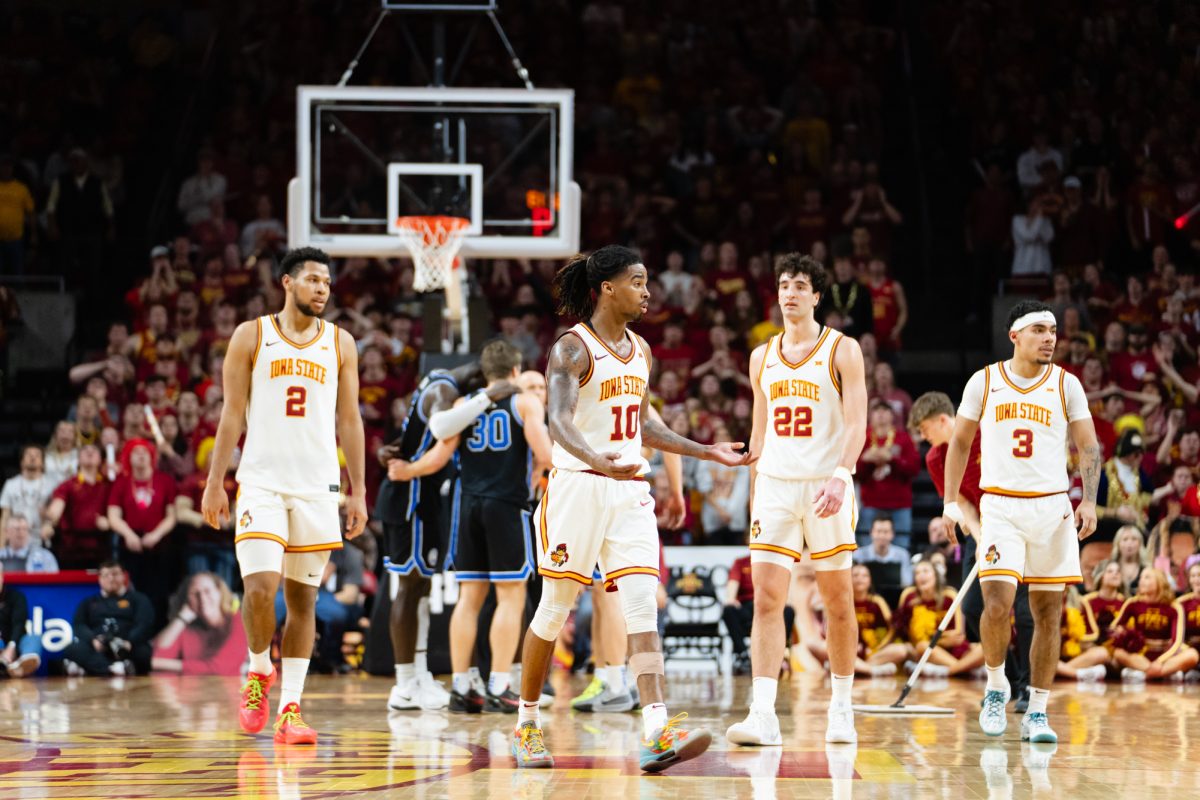Barstool sports and human sexuality spoken about during “gender and masculinity in education” session

Courtesy of @BarstoolISU’s Instagram
barstool ISU
April 7, 2019
The “Gender and Masculinity in Education” session contained research about the theme of masculinity and human sexuality in society.
Peyton Spanbauer, a senior in Journalism, presented “Breaking Barstool: Toxic Masculinity at Iowa State University.” Spanbauer began with a background on Barstool media and the content they post on their social medias.
Spanbauer spent about 15 months examining 1,300 of Barstool ISU’s Instagram posts, as it is the most popular of Iowa State’s Barstool accounts. She noted her most prominent findings.
While examining the Instagram posts, Spanbauer witnessed content that contained the “battle of the sexes” theme, people under the influence of drugs or alcohol engaging in violent behavior and Iowa State’s competitions being put down with harsh jokes.
Spanbauer said Iowa State Barstool media holds a double standard of men versus women. The men on Barstool accounts are perceived as masculine and can handle drinking large amounts of alcohol while the women of Barstool are represented as sexual objects and are weaker than their male peers.
A recurring theme of Barstool that Spanbauer discussed was the fact that this sexist and illegal behavior has been normalized and accepted. A popular term that plays into this normalization is “Saturdays are for the boys.”
Spanbauer’s research reveals the negative aspects of Iowa State’s Barstool media. Barstool accounts are no longer focused on college sports but rather party life and promoting close-minded perspectives, according to Spanbauer’s research.
Caedyn Krahling, Deidra Ennis, and Danika Nolte presented “Quality and Comprehensiveness of Human Sexuality among Iowa State students.” They sent out a Google Form survey to first-year Iowa State students to evaluate the sexual education the students received in high school and how effective they felt it was.
Nolte explained how they chose which group of people to study. They sent out 3,000 surveys and received 75 responses. Nolte noted their demographic consisted of mostly women and were mainly from public schools. She also said their survey included a variety of questions not one format for all of them.
Ennis spoke about one of the questions in the survey “what resource would you say is the most important to your understanding of human sexuality?” Only 11 percent chose school. Ennis commented on how that is alarming considering school is where people are supposed to be educated.
Ennis went through other questions asked in the survey. The survey asked the respondents about the extent of sexual education they received, what topics were covered and how well they understood it. A common finding was sexual education heavily encouraged abstinence possibly affecting how students felt about their sexuality.
Krahling spoke about how religion impacted the sexual education and how those who teach these classes aren’t required to meet certain qualifications. Krahling also said about 10 percent of respondents did not take the survey seriously, leaving malicious and transphobic responses about gender identity.


